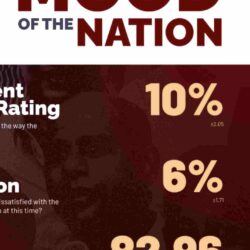- Budget Speech Included GRB, But Sri Lanka’s Track Record Inspires No Optimism
With the committee stage debates on Budget 2024 still ongoing, our interest has been piqued by a term that has gained relatively little attention since it was mentioned in the Budget Speech presented on 13 November 2023: “Gender-Based Budgeting”.
Gender-Based Budgeting or Gender-Responsive Budgeting (GRB) makes sense, from a social justice perspective and a sustainable growth perspective. However, given the government’s track record with GRB, those of us looking for more than a token reference are likely to be disappointed. However, GRB needs to be on the government’s agenda for 2024, and the government now needs to go beyond paying lip service to GRB.
What is Gender-Responsive Budgeting (GRB)?
A national budget sets out a country’s revenue and expenditure for the upcoming fiscal year. Budgets that are ‘gender blind’ imagine women and men on a level playing field, with equal access to opportunities and resources. In contrast, gender-responsive budgets acknowledge the different life choices and challenges faced by women and men. Therefore, GRB offers a mechanism for evaluating the different impacts of government policies on women and men, and in the context of finite resources and competing needs, it enables gender-equitable resource allocation.
GRB involves the use of complementary gender analysis frameworks and tools across the entirety of the budget cycle: from formulation and approval to implementation and oversight. GRB works well when it is practised in an enabling legal and institutional environment that is shaped by a clear gender-mainstreaming vision and evaluation strategy.
Toying With GRB Since 1997
The concept of GRB is not new to Sri Lanka. In 1997, the National Planning Department at the Ministry of Finance carried out a gender-sensitive budget analysis as part of a pilot that was initiated by the Commonwealth. In 2002, the Ministry of Women’s Affairs together with UNIFEM (now UN Women) undertook a GRB initiative as part of its poverty reduction strategy. In 2003, UNIFEM supported a gender-sensitive analysis of the budget and provided GRB training to policymakers and women’s organisations. In subsequent years, international development partners have supported capacity building initiatives such as gender budgeting exercises for public officials and knowledge building initiatives on GRB for Parliamentarians.
More recently, in 2017, the Ministry of Women and Child Affairs developed 12 Key Performance Indicators (KPI’s) to be considered by all Cabinet Ministries, State Ministries, and Provincial Councils in the preparation of their budget estimates. In addition to establishing a gender focal point, the Ministries were instructed to maintain gender disaggregated databases.
In 2019, as per Budget Circular (No.2/2019), Ministries were required to submit their progress in relation to the 12 above mentioned KPI’s. However, a study conducted by Verité Research, assessing progress on the 12 KPI’s in two consecutive years (2018-2019 and 2019-2020), indicated that minimal progress had been made. During the second year of assessment, for example, no information had been disclosed on the progress of 75% of the KPI’s (9 KPI’s), while 17% (2 KPI’s) showed deteriorating progress, and 8% (1 KPI) showed no progress. In the analysis undertaken by Verité Research, this dismal performance was attributed to the absence of leadership, lack of implementation frameworks, inadequate data collection and recording systems and poor accountability. Moreover, the process of accessing information from the government Ministries was marked by a reluctance to disclose information, delays in obtaining responses, and the rejection of Right to Information (RTI) requests.
In 2021, the Women Parliamentarians’ Caucus (WPC), together with the Select Committee on Gender Equity and Equality introduced guidelines on GRB, and in 2022, presented proposals to include GRB in the budget preparation process. Currently, the WPC is working on establishing a National Commission on Women, and is drafting two bills relating to female empowerment and gender equality.
GRB – A Priority; Now, More Than Ever Before
The government’s lacklustre attitude towards GRB cannot be ignored. The inability to achieve even minimal progress in relation to the KPI’s is indicative of a lack of commitment, accountability and sheer will. This leaves us wondering about the motive behind the reference to GRB in the budget speech of 2024.
While experience dictates that expectations must remain low, tokenism is not the need of the hour. Afterall, GRB is not simply about furthering the government’s commitments to advancing gender equality – it is the foundation of sustained and inclusive growth.
The economic losses Sri Lanka has suffered due to persistently low Female Labour Force Participation (FLFP) Rates over decades are staggering. During the past two decades, for example, FLFP remained at 31% – 36%, while male participation rates hovered around 70%. In this context, GRB would enable the implementation of fiscal measures that alleviate persistently low female workforce participation and promote economic growth.
Investing in a country’s human capital (specifically women, in the case of Sri Lanka) is a matter of utilising available resources and increasing actual contribution to the Gross Domestic Product (GDP). By investing in measures to increase FLFP, the number of hours women work and the number of women in high-productivity sectors, Sri Lanka stands to gain an estimated 14% increase in GDP (approximately USD 20 billion), according to a 2018 study conducted by the McKinsey Global Institute. Increased FLFP also has indirect benefits – with greater financial resources available, households can make better decisions about nutrition, education and healthcare, especially for children and the elderly.
The fact is if we really want to push for not momentary but sustainable and equitable growth, women cannot be excluded from the picture. True commitment transcends mere promises. The government should draw from its previous attempts and aim for tangible results by prioritising budget allocations and policies that enable women who want to work but are currently outside the labour force, to take up employment.
Dr. Venya De Silva is a Social Anthropologist and a Research Director at Verité Research and Portia Kemps is a Junior Research Analyst at Verité Research.
Last modified: April 16, 2024











